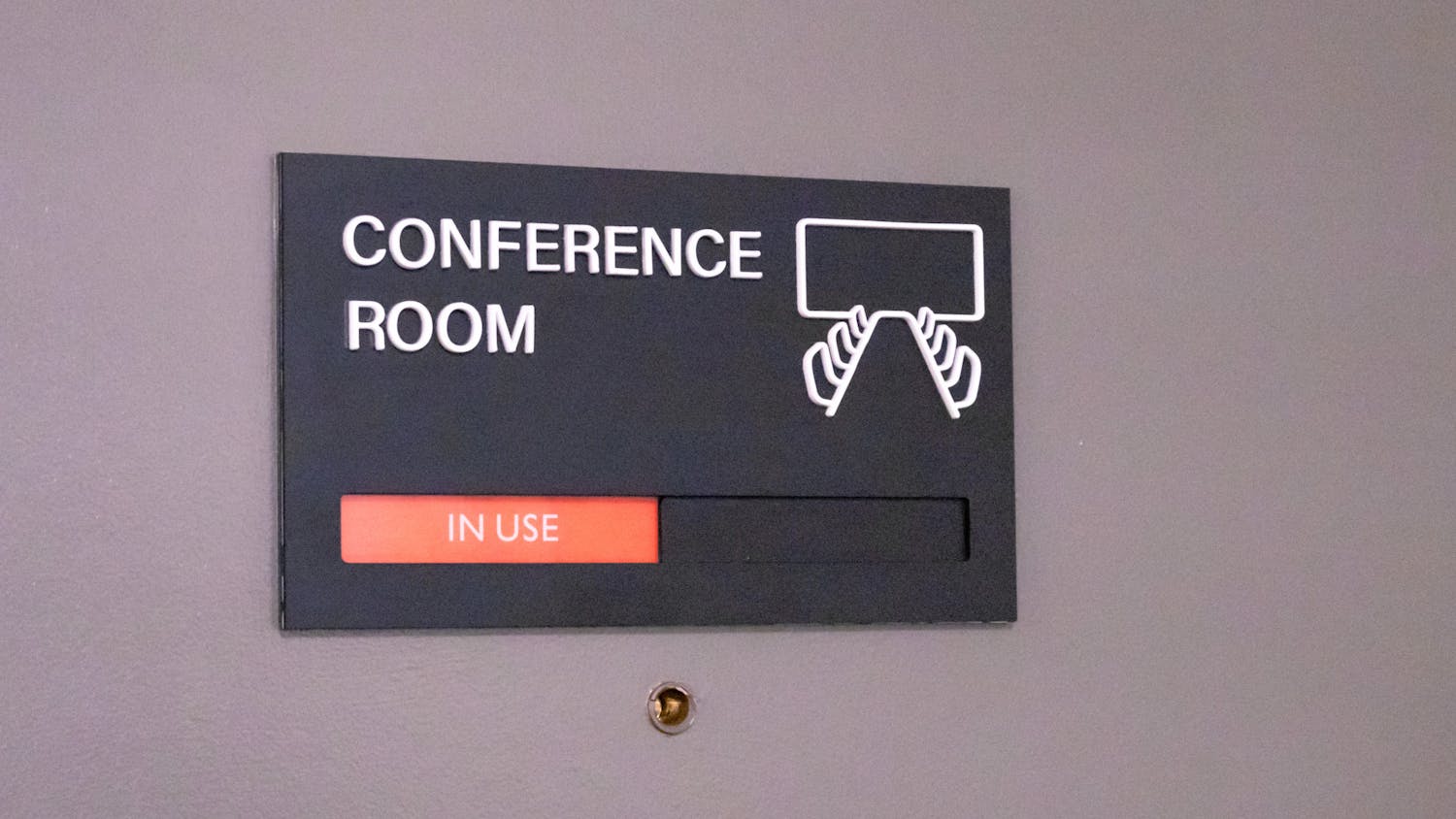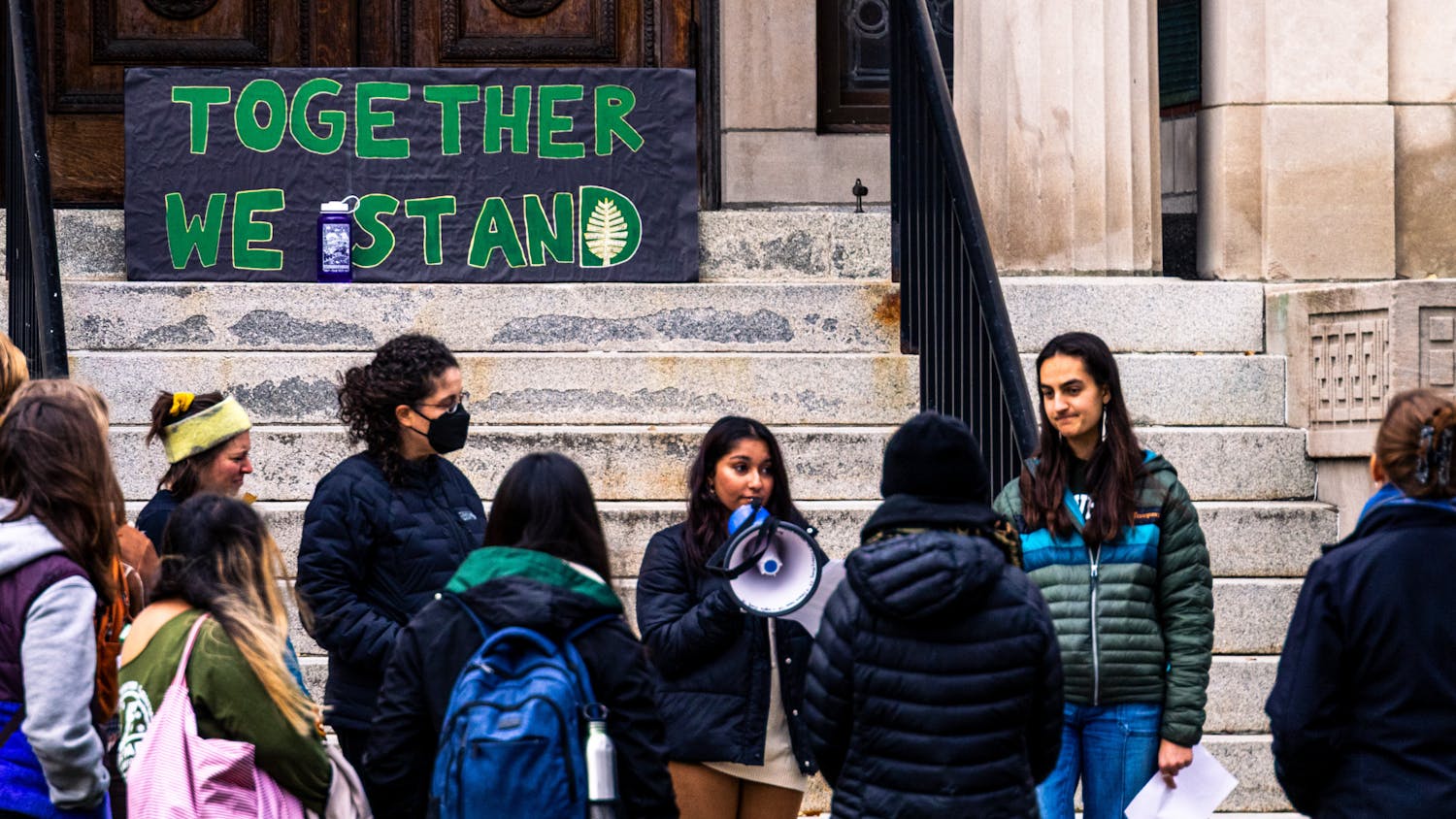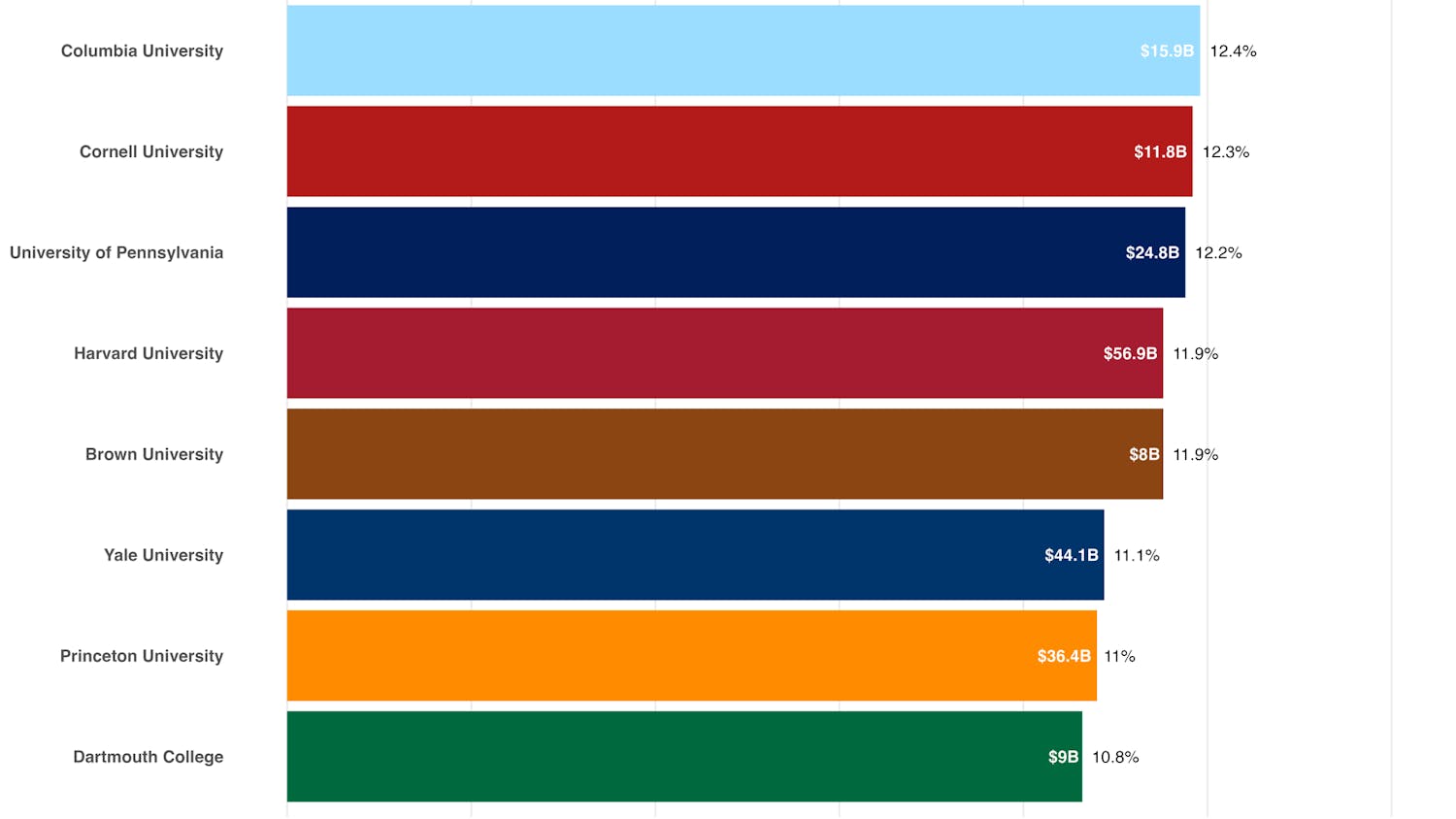The Mellon Fellowship will give five sophomores the funding they need to get a head start in a career in academic research.
The Tucker Foundation has chosen a separate group of students to receive funding to travel and to do community service work during their leave terms.
This year's Mellon Fellows will be Ta'Lease Cleveland '98, Arika Easley '98, Tikia Hamilton '98, Elena Reilly '98 and Elizabeth Sumida '98.
Dean of the Class of 1997 Teoby Gomez said the Mellon Fellowship was started in 1989 after the College received a grant from the Mellon Foundation.
The primary purpose of the fellowship is "to encourage students of color to do research, pursue a Ph.D. and go on to be a college professor," he said.
Gomez said a selection committee awards fellowships to five sophomores who submitted research proposals during Winter term. About 17 to 20 students submit proposals each year, he added.
Gomez said the program gives students stipends to do research, beginning with a large grant in the summer.
Arika Easley '98, a sociology major who was awarded a Mellon Fellowship, said the program is "perfect with my plans in the future to obtain a Ph.D., continue to research and teach at a university level."
She said the fellowship will help her better understand research principles before beginning her thesis.
Easley said she plans to research the "historical and social reasons why many African American families consist of Native American ancestry." Easley said she will be researching her own roots.
Although only five sophomores are selected to be Mellon Fellows each year, several students can participate in Tucker Fellowships each term.
Though the selection committee is still examining Tucker fellowship applicants, those chosen so far include Matt Clavel '97, Jim Freeman '97, Micheal Posey '98 and Heather Worley '97.
Associate Dean of the Tucker Foundation Jan Tarjan said a Tucker Fellowship is "an opportunity for students to do community service or assist others on a leave term."
Tarjan said the fellowship helps students with expenses, like room and board.
Students who qualify for the work-study program and who choose a project in the United States can get funding through their scholarship, Tarjan said.
She said the number of fellows varies each term, but, she said, "it is unusual to have more than 15."
Students interested in the Tucker Fellowship must fill out a lengthy application explaining the project they are interested in, Tarjan said.
Tucker Fellows must do supervised, non-profit community service in a location other than their hometowns or the Upper Valley, she said.
The application, which is due midway through the term before the fellowship, asks students to assess their skills and values and "relate them all to why they want to get the fellowship," Tarjan said.
She said a review committee of two staff members and two former Tucker fellows interviews the students and examines the applications.
Clavel will be working in Boston on a Tucker Fellowship this spring with a program called Jumpstart, an after school program for children aged three to five.
Clavel said the children he will be working with live in the inner city and are often poor. Many are minorities, he said.
Clavel said he will be tutoring kids and doing administrative tasks as an intern.
At the end of April, Clavel will help organize an educational fair for young children and their parents called "Children Across Boston," he said.
His job will be to "get ideas, call sponsors and set up educational booths for things like the museum and the aquarium," he said.Freeman, the president of the Coed Fraternity Sorority Council, said a Tucker Fellowship will allow him to spend his Spring term working with the poor in San Francisco.
Freeman said he will be working for the St. Anthony Foundation, an organization which includes a "series of soup kitchens, homeless shelters, medical clinics and drug rehab centers."
He said his job will consist of hands-on work in a medical clinic, a soup kitchen and a homeless shelter. Freeman said he will also assist his supervisor in administrative tasks.
"The two aspects will really serve what I want," Freeman said. "The hands-on part will show me a different community than you see here at Dartmouth, and I will also start to get an idea of how to deal with issues such as poverty and providing health care."
Through his Tucker Fellowship this spring, Posey will be working on the U.S./Mexico border with an organization called Border Association for Refugees from Central America, Posey said.
He said he will be promoting self-education for women and children in the area as well as translating and aiding immigrants in filing citizenship petitions.
Worley, who could not be reached for comment, will work in San Francisco, Calif., with families with HIV, Tarjan said.



